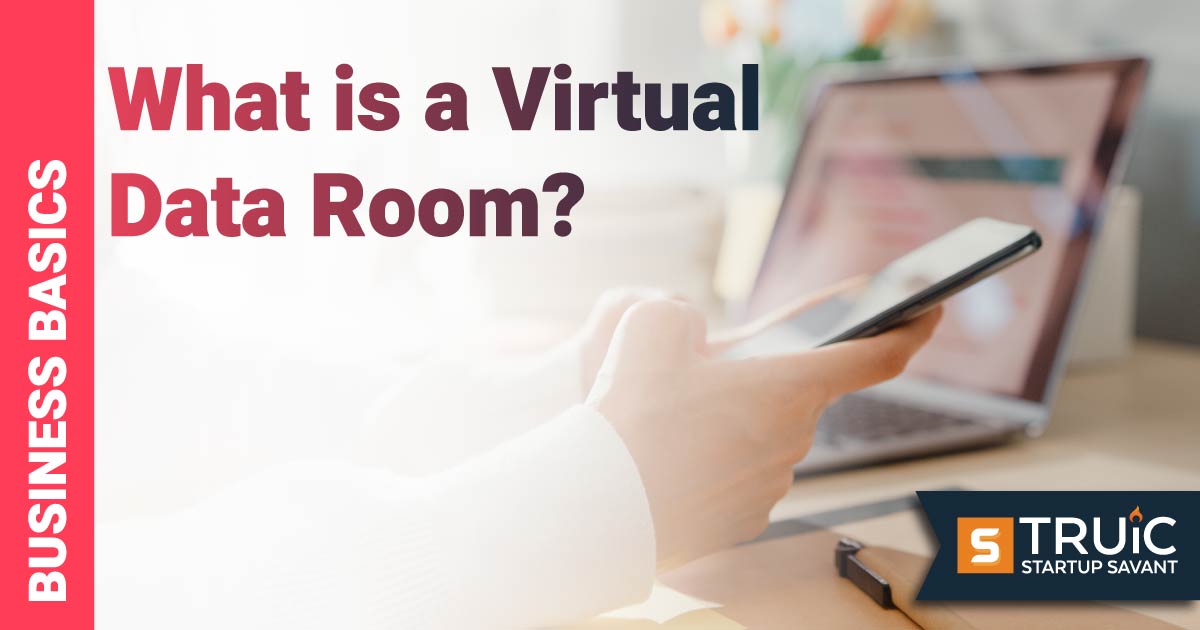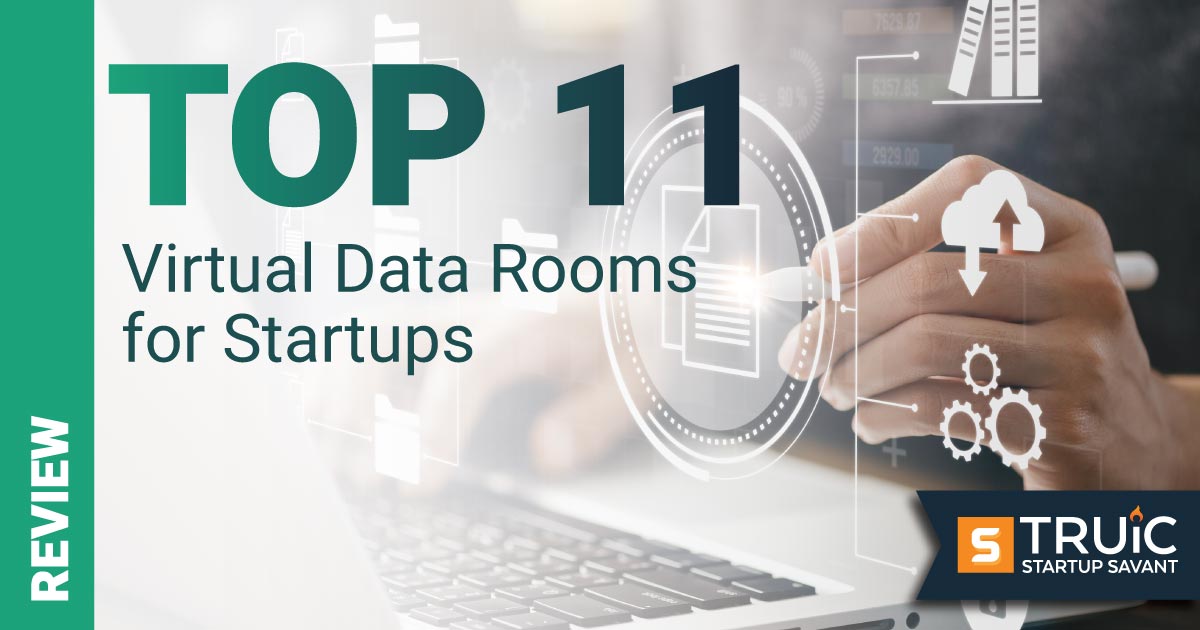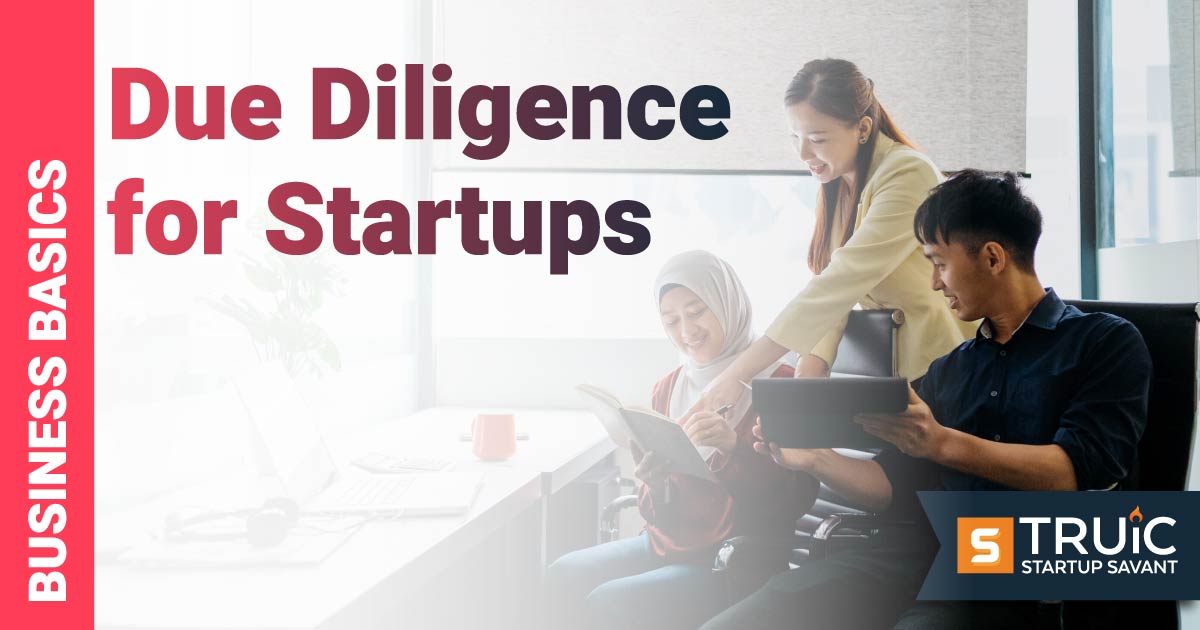What Is a Virtual Data Room (VDR)?

Last Updated: By TRUiC Team
A virtual data room (VDR) is a secure online repository used for storing and sharing sensitive information. They are often used in business transactions such as mergers and acquisitions, private equity and venture capital transactions, and initial public offerings (IPOs).
In this article, we'll explore how virtual data rooms work, their pros and cons, and more. Let’s get started.
Recommended: Check out our review of the best virtual data room providers for startups.
Understanding Virtual Data Rooms
Virtual data rooms (VDRs) — sometimes referred to as virtual deal rooms — offer a range of features designed to facilitate due diligence, deal-making, and collaboration among multiple parties involved in a business transaction. It acts as a virtual workspace where authorized individuals can access documents, collaborate, and communicate, all while ensuring stringent data security measures.
Jump Ahead:
Raising Capital?
Don't just find investors—let them discover you. Sign up for Systematic to build your virtual data room today.
What Are Virtual Data Rooms Used For?
VDRs are used to facilitate several business operations, including:
Due Diligence
Due diligence is a fancy term for 'doing your homework' about a company. If a business wants to buy another business, or if investors want to put money into a company, they need to learn everything about it. They check financial records, contracts, employee details, and a lot more. A data room allows the company to share all these details securely.
Mergers and Acquisitions (M&A)
When two companies decide to combine into one, or when one company buys another, they need a safe place to share and review tons of data. A virtual data room can keep all the documents well-organized and protect them from unwanted eyes.
Fundraising
If a company wants to raise money from investors, it needs to share a lot of information about itself. This can include business plans, financial projections, and details about the market it operates in. A VDR makes it easy for the company to share these details with potential venture capital investors while keeping the information secure.
Initial Public Offering Preparation
When a company decides to go public and issue its shares to the general public for the first time, it's known as an initial public offering. Preparing for an IPO involves sharing a lot of confidential information with potential investors, underwriters, and regulators. The details can include financial statements, business strategies, risks, operational details, and more.
Intellectual Property (IP) Management
Many companies have valuable secrets, like unique technology or special recipes. These secrets, called intellectual property, need to be kept safe but sometimes also need to be shared, like when partnering with another company.
Board Communications
The board of directors of a company makes important decisions. They often need to review and discuss confidential documents. A virtual data room gives them a safe and easy way to do this, no matter where they are in the world.
Audit and Compliance
Companies need to follow rules set by the government and other bodies. Audits are done to check if they are following these rules. An electronic data room can help store all the necessary documents in one place, making audits less of a headache.
Who Uses Virtual Data Rooms?
Virtual data rooms are not only for big corporations. Many different types of people and organizations find them helpful. Let's look at who typically uses virtual data rooms:
- Businesses & Startups: to share confidential business information during a deal, store important sensitive documents, and allow workers in different locations to access documents securely.
- Investors & Financial Firms: to safely and efficiently review all the information they need before making an investment decision.
- Law Firms: to store and share sensitive data, like case files and client details.
- Real Estate Companies: to handle information such as contracts, inspection reports, and financial data.
- Government Agencies: to store, manage, and share sensitive documents. Particularly useful when different agencies need to work together on a project.
- Nonprofits and Foundations: for sharing documents with board members, donors, and staff in a secure manner.
- Healthcare Institutions: to manage sensitive patient information securely and meet privacy rules.
- Educational Institutions: to manage various kinds of data, including student records, research data, and financial information.
How Do VDRs Work?
Now that we know who uses virtual data rooms and what they use them for, let's discuss how these digital vaults actually work. Here's a simple breakdown:
1. Setting Up the Room
First, the data room needs to be set up. This is done by choosing a VDR service provider and creating an account. Then, the user can start creating folders and uploading documents. They can also set up different user permissions, which decide who gets to see or edit what information.
2. Uploading Data
Once the VDR is set up, you can start uploading data. This can be documents, spreadsheets, images, videos, or any other type of file. The files are usually encrypted to ensure they are secure. Encryption is like turning your data into a secret code that only authorized people can read.
3. Access Control
In a virtual data room, the owner can control who gets access to what information. They can invite people to the VDR and assign them different levels of access. For example, some users might only be able to view documents, while others might be able to edit or download them.
4. Viewing and Downloading Data
Authorized users can log into the VDR and browse the documents. Some virtual data room providers also have features like search functions, which make it easier to find specific information. Depending on their permissions, users might be able to download documents or just view them online.
5. Tracking and Reporting
One powerful feature of VDRs is that they can track what happens in the room. They can keep a log of who accessed which documents and when. This can be very useful for keeping track of who is doing what.
6. Closing the Room
Once the project or transaction is completed, the room can be closed. Depending on the VDR provider, the data might be archived for future reference or deleted.
So, think of a virtual data room as a digital library with a super strict librarian. You can put all your important documents on the shelves, and the librarian will only let the right people see them. Plus, they keep a record of who looked at which books and when. This ensures that your data stays secure, organized, and trackable.
Pros and Cons of VDRs
Like any tool, a VDR comes with both benefits and drawbacks. Let's explore the pros and cons to give you a balanced understanding.
Pros
- Security: One of the biggest advantages of virtual data rooms is their high level of security. They use techniques like data encryption and two-factor authentication to make sure your data stays safe.
- Accessibility: With a data room, you can access your data from anywhere at any time, as long as you have an internet connection. This makes VDRs extremely convenient.
- Efficiency: A data room can save a lot of time. They allow multiple people to view documents at the same time, which can speed up processes like due diligence or audits.
- Control: With a virtual data room, you can control who sees what. You can give different people different levels of access to your documents.
- Tracking: Data rooms let you see who accessed which documents and when. This can provide valuable insights and ensure accountability.
Cons
- Cost: Virtual data room providers usually come with a fee. Depending on the provider and the amount of data you have, this can be a significant expense.
- Technical Issues: Like any digital tool, VDRs can sometimes have glitches or downtime. However, good VDR providers will have measures in place to minimize these issues.
- User Error: Sometimes, people make mistakes, like accidentally deleting a document or giving someone the wrong level of access. Good training can help reduce these errors.
- Learning Curve: It might take some time to learn how to use a virtual data room effectively. This can slow things down at first, but once everyone gets the hang of it, the process should become smoother.
Choosing Virtual Data Room Software
Different virtual data room services have various features and pricing structures, so it's important to choose one that fits your specific needs. Here are some things you should look for when choosing a VDR provider:
Security
This is the top priority. Ensure the provider uses top-notch security measures such as data encryption, two-factor authentication, and secure user permissions. Your data's safety is paramount, so don't compromise on this point.
Ease of Use
An intuitive and user-friendly interface will make the experience smoother for all users. You don't want to lose time trying to figure out a complicated system. Look for features like drag-and-drop file management and a clean, organized dashboard.
Customer Support
Sometimes, you might encounter technical issues or need help using the virtual data room. A VDR provider with reliable, 24/7 customer support can be a lifesaver in such situations.
Audit Logs
This feature allows you to track who has accessed the VDR and what they did. It's important for maintaining accountability and can provide valuable insights during transactions.
Customizability
Every company has different needs, so a one-size-fits-all solution might not work for you. A VDR that allows you to customize user access, branding, notifications, and other features can be a big advantage.
Cost
Evaluate the pricing structure of the virtual data room provider. Some offer flat-rate pricing, while others charge based on data usage or the number of users. Consider your budget and the value you'll be getting.
Reviews and Reputation
Check out reviews from other users to get a sense of the provider's reliability and performance. A provider with a strong reputation in the industry is usually a good sign.
Integration
If you're already using other software for tasks like project management or communication, check if the data room can integrate with these collaboration tools. This can make your workflow smoother.
Alternatives to Virtual Data Rooms
While online data rooms are designed specifically for securely sharing confidential documents and collaborating during business transactions, other platforms exist that may seem like alternatives. However, these options lack key features, security, and oversight controls crucial for regulated deals and due diligence.
Some common alternatives to virtual data rooms include:
File Sharing Services
Tools like Dropbox and Google Drive allow sharing files and folders. They offer basic collaboration features but lack the security controls and auditing of virtual data rooms.
Project Management Platforms
Applications like Wrike, Smartsheet, and Monday enable task management and workflow automation. But they are not purpose-built for due diligence.
Sharing documents via email attachments or links is simple but not secure and lacks oversight. Email is better suited for general information exchange.
Physical Data Rooms
Traditional physical data rooms with on-site document storage and review used to be common for M&A and fundraising. Virtual data rooms have mostly replaced them with lower costs and easier access.
Custom Portals
Some organizations build custom portals or use document management systems to share information internally. But these require extensive development and maintenance.
Secure FTP Sites
Sites utilizing file transfer protocol with added security layers can share documents. However, they lack many collaboration features expected in virtual data rooms.
For most high-stakes, heavily regulated deals involving sensitive corporate data, virtual data rooms provide unparalleled levels of security, compliance, activity monitoring, access limitations, and other controls to enable secure collaboration during the due diligence process.
The optimal solution depends on specific organizational needs and the nature of the documents being shared. But for regulated data subject to compliance requirements, virtual data rooms are designed expressly to provide secure collaboration environments with robust access controls and auditing tools.
Final Thoughts
Virtual data rooms have revolutionized the way we handle confidential and important documents. They've emerged as a secure, efficient, and convenient solution for data management and collaboration. Whether you're making a business deal, conducting due diligence, or simply storing company records, a virtual data room can be a valuable tool.
From startups to large corporations, from investors to legal professionals, people across industries are discovering the benefits of data rooms. And with the right one, you can ensure your data is not just stored but also leveraged in a way that propels your company forward.
FAQs
What is the purpose of a virtual data room?
Modern virtual data rooms offer secure file sharing of confidential documents. It's typically used during financial transactions, the due diligence process, legal proceedings, and other instances where sensitive documents need to be accessed by multiple interested parties in a secure and controlled manner.
What is the difference between a physical data room and a virtual data room?
A physical data room is a secure location where companies store physical copies of their important documents. Access to physical data rooms is strictly controlled and usually involves travel and scheduling considerations.
On the other hand, a virtual data room is a digital platform where data is stored electronically. It can be accessed from anywhere in the world at any time, making it more convenient and efficient than traditional data rooms.
How much does a virtual data room cost?
The cost of a virtual data room can vary widely depending on the provider, the volume of data, and the number of users. Some virtual data room providers charge a flat monthly or annual fee, while others may charge based on data usage.
Generally, prices can range from a few hundred dollars a month to several thousand dollars for more extensive usage. Always check with the virtual data room provider for specific pricing.
Are virtual data rooms secure?
Yes, reputable virtual data room providers prioritize security. They typically use advanced security measures such as data encryption, two-factor authentication, secure user permissions, and audit logs.
However, the level of security can vary between providers, so it's crucial to ensure the VDR provider you choose meets your security standards.
How do you set up a virtual data room?
Setting up a VDR involves choosing a virtual data room provider, creating an account, and then organizing your data within the platform. You can create folders, upload documents, and assign different levels of access permissions to different users. The process will vary slightly depending on the provider, but most aim to make it as straightforward as possible.
What should I have in my data room?
The content of your data room depends on its purpose. If you're using it for a financial transaction or due diligence, you might include financial statements, contracts, intellectual property details, pitch deck, and more. Generally, any important, sensitive, or confidential document that needs to be shared with another party can be included in your data room.
What is the best data room?
There are many excellent virtual data room providers, but some of the most highly-rated ones include:
- Systematic - A dynamic virtual data room solution, focusing primarily on the needs of founders and startups.
- Firmex - A popular Canada-based VDR provider with intuitive features and layouts. Good adoption rates among M&A and fundraising deals.
- iDeals - Strong choice for European centric deals. Multilingual platform with advanced AI and blockchain integrations.
The best data room balances security, ease-of-use, customer support, and features relevant to specific use cases. Factors like deal size, location, integrations, and budget needs also influence the ideal VDR provider for each organization's needs when choosing among the best virtual data rooms. Testing options like free trials help assess platforms.


